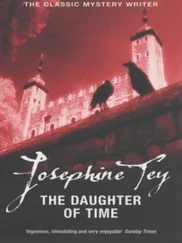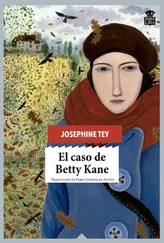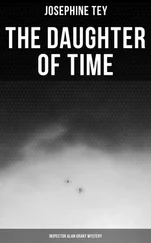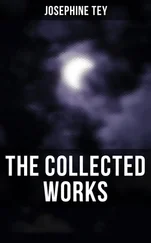‘It’s a fine little country, this,’ he said. ‘I like it. If you ever decide to fight for your freedom, count me in.’
‘Freedom?’ said Zoë, opening her eyes. ‘Freedom from whom or what?’
‘From England, of course.’
Zoë looked helpless, but Grant began to laugh. ‘I think you must have been talking to a little black man in a kilt,’ he said.
‘He had a kilt, yes, but he wasn’t coloured,’ Mr Cullen said.
‘No, I meant black-haired. You’ve been talking to Archie Brown.’
‘Who is Archie Brown?’ asked Zoë.
‘He is the self-appointed saviour of Gaeldom, and our future Sovereign, Commissar, President or what have you, when Scotland has freed herself from the murderous burden of the English yoke.’
‘Oh, yes. That man,’ Zoë said mildly, identifying Archie in her mind. ‘He is a little off his head, isn’t he? Does he live around here?’
‘He is staying at the hotel at Moymore, I understand. He has been doing missionary work on Mr Cullen, it seems.’
‘Well,’ Mr Cullen grinned a little sheepishly, ‘I did just wonder if he wasn’t over-stating things a bit. I’ve met some Scots in my time and they didn’t seem to me to be the kind of people to put up with the treatment Mr Brown was describing. Indeed, if you’ll forgive me, Mr Grant, they always seemed to me the kind of people to get the best of whatever bargain was going.’
‘Did you ever hear the Union better described?’ Grant said to Zoë.
‘I never knew anything about the Union,’ Zoë said comfortably, ‘except that it took place in 1707.’
‘Was there a battle, then?’ Mr Cullen asked.
‘No,’ Grant said. ‘Scotland stepped thankfully on to England’s band-wagon, and fell heir to all the benefits. Colonies, Shakespeare, soap, solvency and so forth.’
‘I hope Mr Brown doesn’t go lecture-touring in the States,’ Zoë said, half asleep.
‘He will,’ Grant said. ‘He will. All vociferous minorities go lecture-touring in the States.’
‘It will give them very wrong ideas, won’t it?’ Zoë said mildly. Grant thought with what a blistering phrase Laura would have expressed the same idea. ‘They have the oddest ideas. When David and I were there, the year before he was killed, we were always being asked why we didn’t stop taxing Canada. When we said we had never taxed Canada they just looked at us as if we were telling lies. Not very good lies, either.’
From Mr Cullen’s expression Grant deduced that he too had had ‘odd’ ideas about Canadian taxation, but Zoë’s eyes were closed. Grant wondered if Mr Cullen realised that Zoë was quite unaware that he was an American; that it had not occurred to her to consider his accent, his nationality, his clothes or any personal thing about him. She had accepted him as he stood, as a person. He was just a flyer, like her brother; someone who had turned up in time to share their picnic and who was pleasant and interesting to talk to. It would not occur to her to pigeon-hole him, to put him in any special category. If she was conscious at all of his narrow a’s she no doubt took him for a North-countryman.
He looked at her, half asleep there in the sun, and thought how beautiful she was. He looked across at Mr Cullen and saw that he too was looking at Zoë Kentallen and thinking how beautiful she was. Their glances met and ran away from each other.
But Grant, who last night could imagine no greater felicity than to sit and look at Zoë Kentallen, was conscious now of a faint impatience with her, and this so shocked him that he took it out, in his self-analytical way, to examine it. What flaw could there be in this divinity? What imperfection in this princess from a fairy-tale?
‘You know very well what’s wrong,’ said that irreverent voice in him. ‘You want her to get the hell out of here so that you can find out about B Seven.’
And for once he did not try to contradict the voice. He did in brutal fact wish that Zoë would ‘get the hell out of here’. The Zoë whose very presence had made magic of yesterday afternoon was now an encumbrance. Tiny prickles of boredom chased each other up and down his spine. Lovely, simple, heavenly Zoë, do get a move on. Creature of delight and princess of my dreams, go away.
He was rehearsing phrases for taking his own departure, when she gave the abrupt half-sigh half-yawn of a child and said: ‘Well, there is a seven-pounder in the Cuddy Pool that must be finding life dull without me.’ And with her usual lack of fuss or chat she took her things and departed into the spring afternoon.
Mr Cullen looked after her approvingly, and Grant waited for comment. But it seemed that Mr Cullen too had been waiting for the departure of his ‘marked-down Countess’. He watched her out of earshot and then said immediately:
‘Mr Grant, why did you ask me if I had a photograph of Bill? Does that mean that you think you know him?’
‘No. No. But it would eliminate people who could not be Bill.’
‘Oh. Yes. Well, I haven’t one in my pocket but I have one in my grip at the hotel. It isn’t a very good one, but it would give you the general idea. Could I bring it to you sometime?’
‘No. I’ll walk down to Moymore with you now.’
‘You will? You’re certainly very kind, Mr Grant. You think you’ve got a line on this thing? You haven’t told me what those words were. That quotation or whatever it was. That’s really what I came to ask you. What the talking-beasts thing was all about. If it was a place he was interested in, you see, he might have gone there, and I could go there too and cross his trail that way.’
‘You’re very fond of this Bill, aren’t you?’
‘Well, we’ve been together quite a time and though we’re opposites in most ways we get along fine. Just fine. I wouldn’t like anything to happen to Bill.’
Grant changed the conversation and asked about Tad Cullen’s own life. And while they walked down the glen to Moymore he heard about the clean small town back in the States, and what a dull place it seemed to a boy who could fly, and how wonderful the East had seemed in the distance and how unexciting close up.
‘Just Main Street with some smells,’ Mr Cullen said.
‘What did you do in Paris during your long wait for Bill to turn up?’
‘Oh, I helled around some. It wasn’t much fun without Bill. I met a couple of chaps I’d known in India, and we went places together, but I was impatient all the time for Bill to be there. I let them go, after a bit, and went to look at some of the places in the tourist folders. Some of those old places are pretty nice. There was one place built right over the water—a castle, I mean—on stone arches, so that the river flowed underneath. That was fine. It would have done very well for the Countess. Is that the kind of place she lives in?’
‘No,’ Grant said, thinking of the difference between Chenonceaux and Kentallen. ‘She lives in a grim, flat, grey house with tiny windows and poky rooms and narrow stairs and a front door as welcoming as the exit of a laundry chute. It has two little turrets on the fourth-storey level, next the roof, and in Scotland that makes it a castle.’
‘Sounds like a prison. Why does she stay?’
‘A prison! No Prison Committee would consider it for a moment; questions would be asked in the House immediately about its lack of light, heating, sanitary conveniences, colour, beauty, space, and what not. She stays because she loves the place. I doubt if she can stay much longer, however. Death duties have been so heavy that she will have to sell.’
‘But will anyone buy it?’
‘Not to live in. But some speculator will buy it, and cut down the woods. The lead on the roof would probably fetch something; and they’d have to take the roof off anyhow to avoid paying tax on the house.’
Читать дальше












